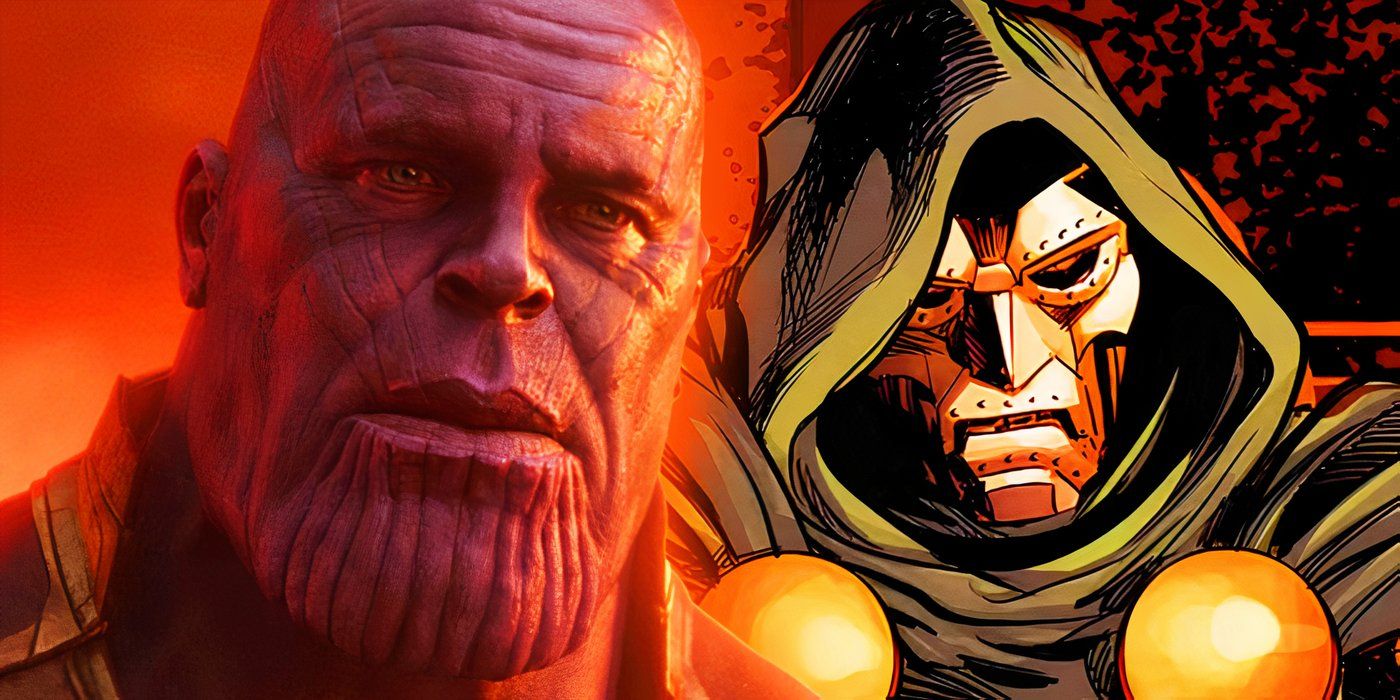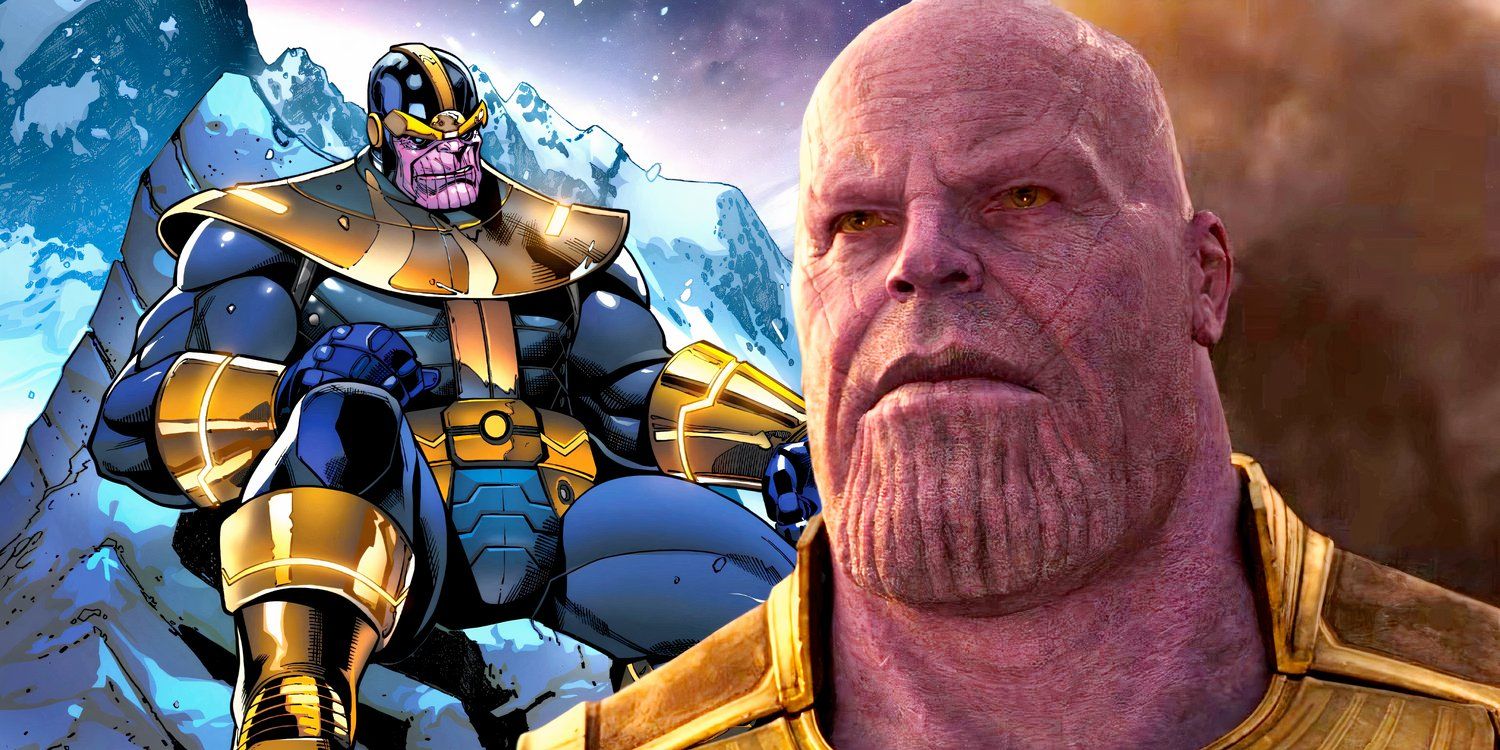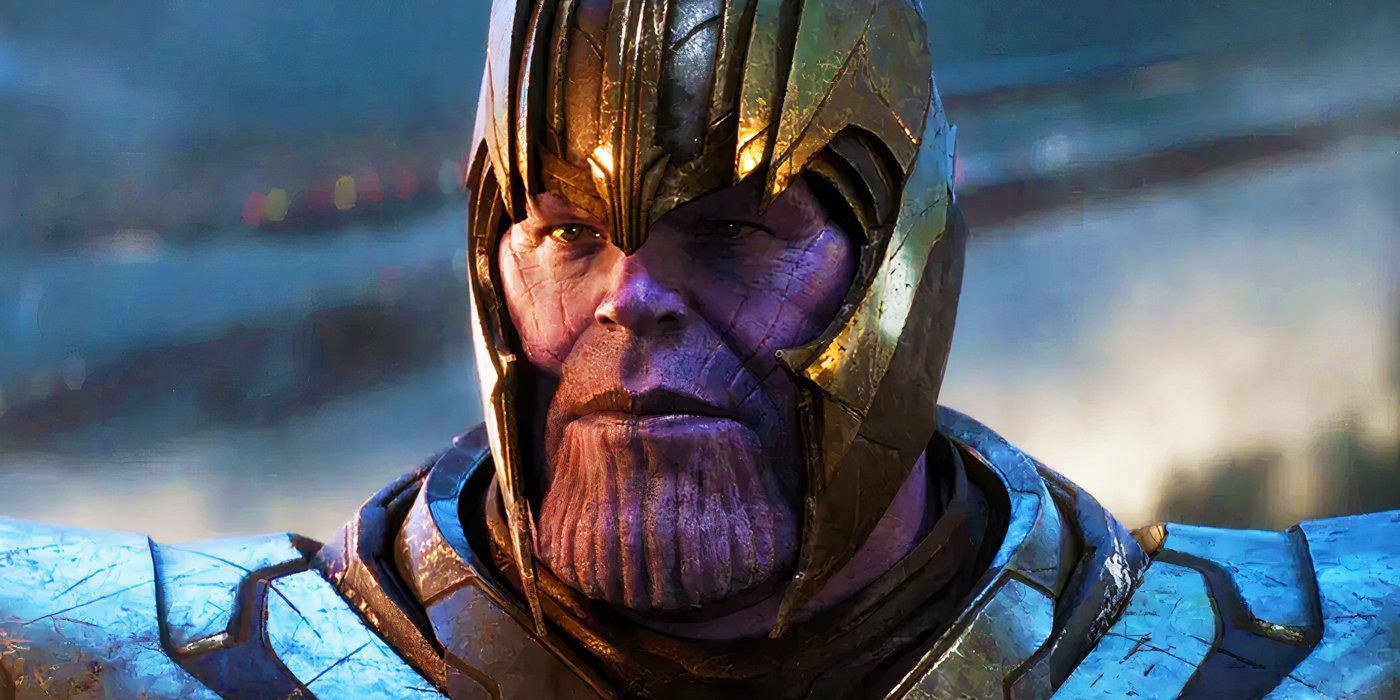Thanos might be the MCU’s most famous foe, but his powers are notably different from the comics. Thanos, the Mad Titan, is one of Marvel’s most formidable villains, a name that strikes fear across the cosmos. Both in the MCU timeline and the comics, his obsession with balance, conquest, and the Infinity Stones makes him a central antagonist to Earth’s mightiest heroes. While his portrayal in the MCU has become iconic, longtime Marvel fans often compare this version to his comic counterpart, sparking debates about which iteration of Thanos is truly more powerful.
Thanos was created by Jim Starlin and debuted in Iron Man #55 (1973). In the comics, he’s portrayed as a nihilistic philosopher with a godlike hunger for power, motivated by his love for the cosmic entity Death. Meanwhile, the MCU’s Thanos, portrayed by Josh Brolin, takes on a more utilitarian angle – a self-styled savior who commits genocide to prevent universal overpopulation. Despite these philosophical differences, both versions are united by their unrelenting drive and incredible strength. Understanding the distinction between the two versions requires examining their abilities, the scope of their power, and their greatest feats.
Thanos’ Powers In Marvel Comics Explained
In the Marvel comics, Thanos’ powers are vast, making him one of the most powerful beings in the universe, even without the Infinity Stones. His inherent abilities include superhuman strength and durability. Thanos possesses extraordinary strength that places him above nearly all Marvel heroes and villains.
He has effortlessly overpowered the Hulk, subdued Thor, and stood toe-to-toe with cosmic beings. His durability is equally legendary, allowing him to withstand attacks from Mjolnir, energy blasts from Galactus, and even reality-altering attacks. Thanos is also a master of cosmic energy manipulation, enabling him to project devastating energy blasts, create force fields, and manipulate matter.
Thanos has shown the ability to teleport and resurrect beings, a testament to his command over the fabric of reality. Gifted by Death herself, Thanos is also effectively immortal and cannot die through conventional means. Even when grievously injured, he can regenerate quickly, making him nearly impossible to kill permanently. On the rare occasions that Thanos has died, he has come back even stronger than before.
Thanos is not just brawn but also highly intelligent. He’s a master strategist and inventor, creating advanced technology and devising complex schemes to achieve his goals. Thanos also boasts a cosmic awareness that grants him knowledge of changes and events throughout the universe. Consequently, his knowledge of cosmic lore and science is unmatched.
Arguably Thanos’s most famous power boost comes from wielding the Infinity Gauntlet, which houses the six Infinity Gems (Stones in the MCU). With the Gauntlet, Thanos has control over time, space, power, reality, mind, and soul. In the Infinity Gauntlet storyline, he uses it to wipe out half of all life in the universe, defeat the Avengers, and even stand up to cosmic entities like Eternity and the Living Tribunal.
How The MCU’s Thanos’ Powers Compare To The Comics
The MCU’s Thanos, while formidable, is a more grounded version compared to his comic counterpart. Many of his powers were dampened or removed, likely to justify his need for the Infinity Stones. Other more straightforward abilities were retained, however.
|
Thanos’s MCU Appearances |
|---|
|
The Avengers (2012) |
|
Guardians of the Galaxy (2014) |
|
Avengers: Age of Ultron (2015) |
|
Avengers: Infinity War (2018) |
|
Avengers: Endgame (2019) |
|
What If…? (2021-2024) |
|
Doctor Strange in the Multiverse of Madness (2022) |
MCU Thanos demonstrates incredible strength, capable of defeating the Hulk in hand-to-hand combat during Avengers: Infinity War. He also withstands blows from Iron Man, Thor, and Captain Marvel, showing his resilience. However, his durability is more grounded – he sustains injuries from conventional weapons, such as Thor’s Stormbreaker and Wanda Maximoff’s attacks.
Unlike the comic version, the MCU’s Thanos does not display inherent energy manipulation powers. Instead, his use of energy-based attacks comes primarily from the Infinity Stones. Without them, he’s reliant on brute strength and his weaponry.
Unlike the essentially immortal Thanos of the comics, the MCU version is ultimately mortal. He’s beheaded by Thor in Avengers: Endgame, demonstrating that he can be killed through physical means, even if it takes extraordinary effort. While death is never really a permanent state in Marvel Comics, it has proven mostly permanent in the MCU.
Related
There’s Only 1 More Thanos Scene I Need The MCU To Show Before He’s Gone For Good
The MCU hasn’t brought Thanos back since Avengers: Endgame but there’s one concealed scene I want Marvel to show before his story is finished with.
The MCU’s Thanos retains his strategic brilliance. His planning allows him to outmaneuver the Avengers across two movies, orchestrating a nearly flawless conquest of the Infinity Stones. A prime example is him moving forward in time to collect the Infinity Stones gathered by the Avengers in Endgame. This intellect mirrors his comic counterpart, albeit with less emphasis on scientific creation.
In the MCU, the Infinity Gauntlet is central to Thanos’ power. With all six stones, he achieves the Snap, erasing half of all life. However, his mastery over the Stones is more physical than metaphysical – he’s depicted as wielding their power through the Gauntlet, rather than through an intrinsic understanding of their cosmic properties. Nevertheless, they proved essential in numerous battles, with each contributing notably to his eventual triumph in Infinity War.
MCU Thanos vs Comics Thanos: Who Is More Powerful?
When comparing the two versions of Thanos, the comics’ iteration is undeniably more powerful. In the comics, Thanos has battled and defeated cosmic entities like Galactus, the Celestials, and even the One Above All’s avatars. His victory in the Infinity Gauntlet saga includes overpowering nearly every Marvel hero and cosmic being. Without the Infinity Gauntlet, he’s taken down beings like the Silver Surfer and Beta Ray Bill.

Related
Robert Downey Jr’s Doctor Doom Was Created By Thanos According To Avengers: Endgame MCU Theory
There are still huge questions concerning Robert Downey Jr.’s Doctor Doom casting, and a new theory might have found the perfect answer to his return.
In the MCU, his most notable feats include defeating the Hulk without the Stones, besting Thor and Iron Man simultaneously, and wielding all six Infinity Stones to perform the Snap. These are monumental achievements within the MCU’s grounded framework but pale compared to the universal and multiversal feats of his comic counterpart.
Moreover, in the comics, Thanos’s greatest weakness is his hubris and subconscious self-sabotage. In several storylines, he’s lost his near-omnipotent power because he feels unworthy of true victory. This psychological flaw often leads to his defeat.
While he shares the arrogance of his comic counterpart, the MCU version is physically limited without the Stones. His mortality and reliance on physical prowess make him more vulnerable to defeat by conventional means. After destroying the stones and removing his armor, he’s killed quite simply by the powerful Avengers.
Comics Thanos is categorically more powerful. His innate abilities, cosmic energy manipulation, and immortality place him leagues above the MCU’s interpretation. While MCU Thanos is an impressive and terrifying foe within his cinematic universe, he lacks the godlike stature and limitless potential of his comic book counterpart. Thus, in a battle between the two, comic book Thanos would emerge victorious, wielding not just the physical might of the Mad Titan but the boundless cosmic powers that define his character.
Upcoming MCU Movies
Gaming Center
Gaming center adalah sebuah tempat atau fasilitas yang menyediakan berbagai perangkat dan layanan untuk bermain video game, baik di PC, konsol, maupun mesin arcade. Gaming center ini bisa dikunjungi oleh siapa saja yang ingin bermain game secara individu atau bersama teman-teman. Beberapa gaming center juga sering digunakan sebagai lokasi turnamen game atau esports.






